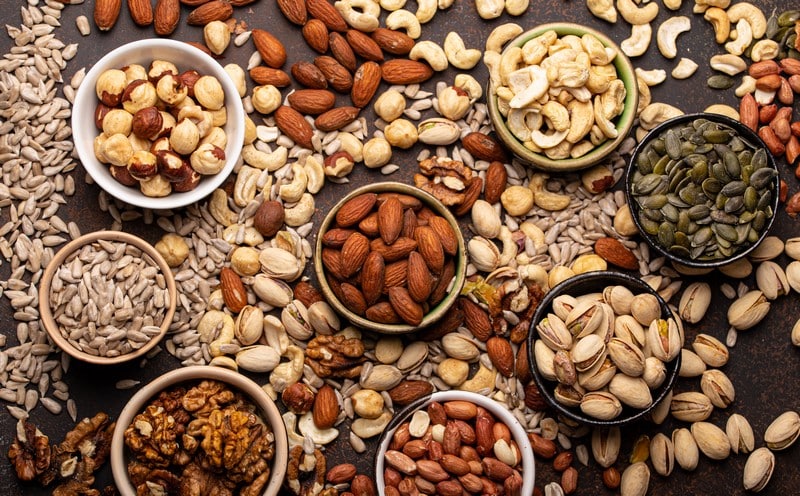Nuts and Seeds

Nuts and seeds are excellent for getting various nutrients, including iron, protein, fiber, healthy fats, vitamins, minerals, antioxidants, and other plant components. In addition to fruits and vegetables, they are excellent plant-based iron sources. It can be included in the diet of those looking to enhance their daily iron intake.
The highest iron content per weight is in pumpkin, sesame, hemp, and flaxseeds, with 9 to 22 percent of the DV in only 1 ounce. An individual can also choose products with these seeds’ content. For example, tahini, a paste from sesame seeds, contains copper, which is essential for increased iron absorption. Also, a half cup of hummus can be prepared with chickpeas and tahini to provide iron deficiency patients with essential nutrients such as iron, calcium, magnesium, selenium, and zinc.
Almonds, cashews, pine nuts, and macadamia nuts are also great choices. Both raw and roasted nuts contain the same amount of iron. Furthermore, pistachios contain the most iron content among other nuts, with 14 milligrams per 100 grams of serving. However, when heated at high temperatures, pistachios lose some nutritional value, so it is better to choose raw that is entirely natural and free of added oils, sugars, or salt. It is also best paired with vitamin C since nuts and seeds are sources of non-heme iron.










